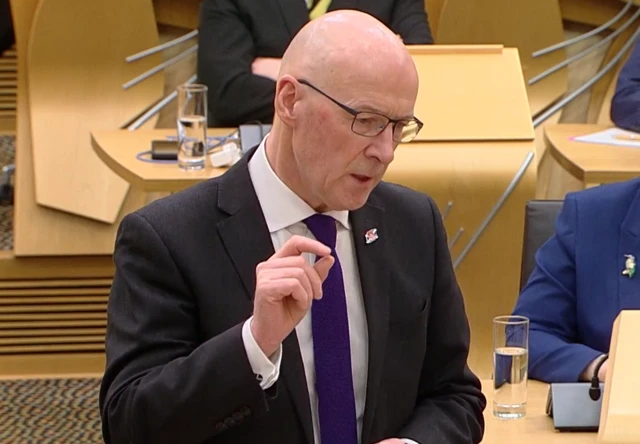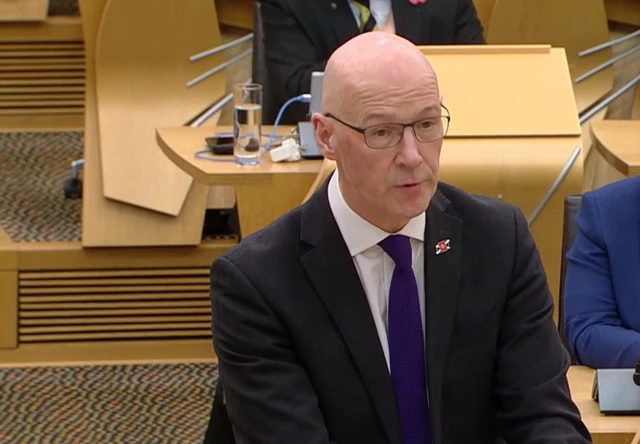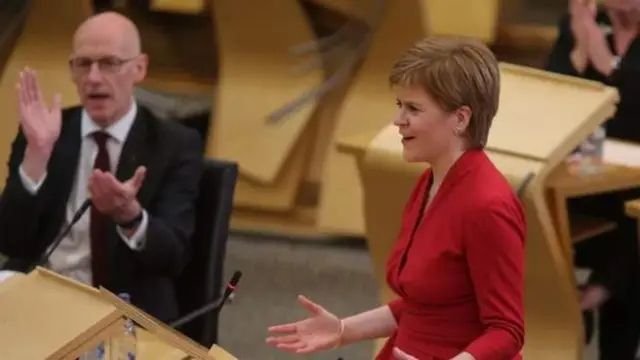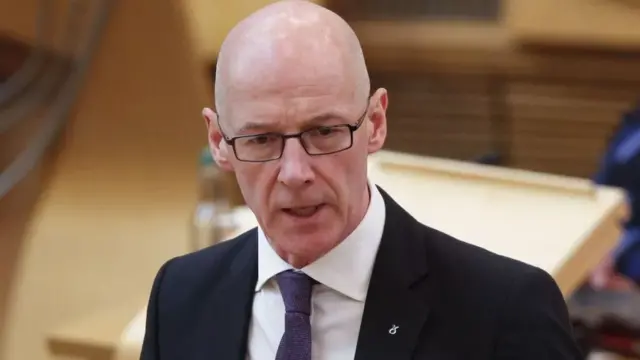'I must balance the books'published at 15:15 GMT 2 November 2022
 Image source, Scottish Parliament
Image source, Scottish ParliamentAny content of a tax discussion paper will have to wait until after the UK government's autumn statement, says Mr Swinney.
In his experience, he says, there has never been a time of greater pressure on the public finances.
Inflation means the annual budget is worth £1.7bn less than when it was published last December, he says.
"I must balance the books, but I'm committed to doing so in a way that prioritises funding to help families, to back business, to provide fair pay awards and to protect the delivery of public services."





